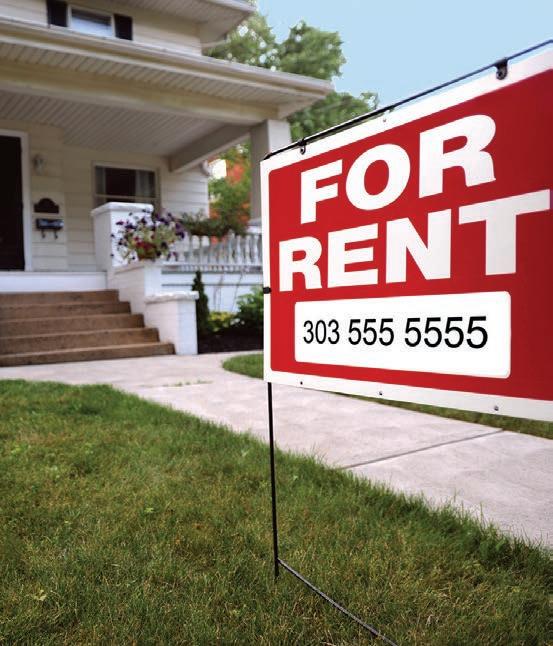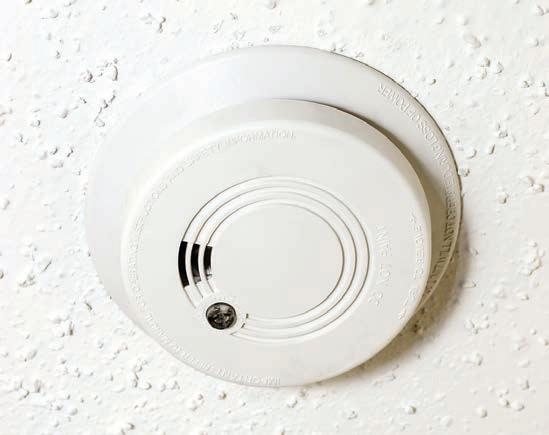
3 minute read
Housing
12) Finding Housing
You can find housing through: - The Internet (craiglist.org). - Talking with friends. - Classified ads in the newspaper. - Housing agencies. - Looking for “For Rent” or “For Lease” signs. Houses, apartments and trailer homes can come with or without furniture. It is possible to rent a single room in a house or an apartment. On craigslist.org this is listed as “rooms/shared”. When you apply to rent you might be asked for your social security number and references from employers and past landlords. These references can prove that you are responsible and will be able to pay rent. It is important to establish good relationships with your landlords. In the classifieds there are many abbreviations such as:
FURN – furnished BA – bathroom BR – bedroom DEP – deposit
13) Renting
When renting, you often need to pay a security deposit. The deposit is usually equal to one month of rent. If you damage the property, the landlord may keep part or all of your deposit and possibly charge you extra. Take photos of any problems before you move in. Renters are not responsible for normal wear and tear. For example, it’s the landlord’s responsibility to replace the dishwasher if it is old and does not function.
14) Getting Problems Fixed
Landlords have to keep their properties safe and in good condition. If your apartment needs repairs: 1. Call the landlord and explain the problem. 2. If he or she does not respond, send a letter and keep a copy of the letter. 3. If you get no response, call a local housing office.
15) The Lease
A lease is the legal contract signed between the landlord and tenant. A lease contains information including: - How much rent you pay each month. - Extra fees for late payment. - Who is responsible for paying water, electricity, gas, and trash service. - When the landlord can increase the rent and by how much. - The number of people who will live on the property . - For how many months you can live on the property . If you want to continue living on the property when your lease ends, talk to the landlord about renewing the contract. A month-to-month lease states that the renter or landlord may end the contract with one month’s notice. If there are no changes from the renter or landlord, the lease automatically renews at the end of every month.
16) Moving
When you move, fill out a Change of Address form at the post office or at usps.com. Change the locks at your new home. Contact friends, family and the following when you move: - Electric, gas, water, phone, cable, internet, and trash companies. - Banks, credit unions and credit card companies. - Doctor, dentist, and insurance agencies. - Department of motor vehicles (DMV). A smoke alarm is a device that will make a loud noise when it senses smoke. Install smoke alarms on every floor of your home. Common causes of house fires include cigarettes, children playing with fire, candles, and things that are hot such as stoves and toasters. Never leave the kitchen while you are cooking or boiling water. Carbon monoxide (CO) is a toxic gas that has no smell or color. High levels of CO can kill you. Every home should have at least one CO detector. Say hello to your neighbors, smile, and introduce yourself. You can welcome new neighbors with a small gift. Only leave trash and recycling outside when they are going to be picked up that day or the next day. Do not use your car horn or play loud music early in the morning or late at night. Your neighbors might call the police if you are very noisy. The police can give you a large fine. Make sure your kids and pets are not playing in the streets or on other peoples’ property. Park cars only in legal spaces.
19) Property & Renter’s Insurance
If you buy property and renter’s insurance you can receive money if damage happens to your property. Examples of damage that is covered by insurance include fire, theft or weather
17) Fires & Carbon Monoxide (CO)

(17) Smoke Alarm example
18) Being a Good Neighbor

damage.








